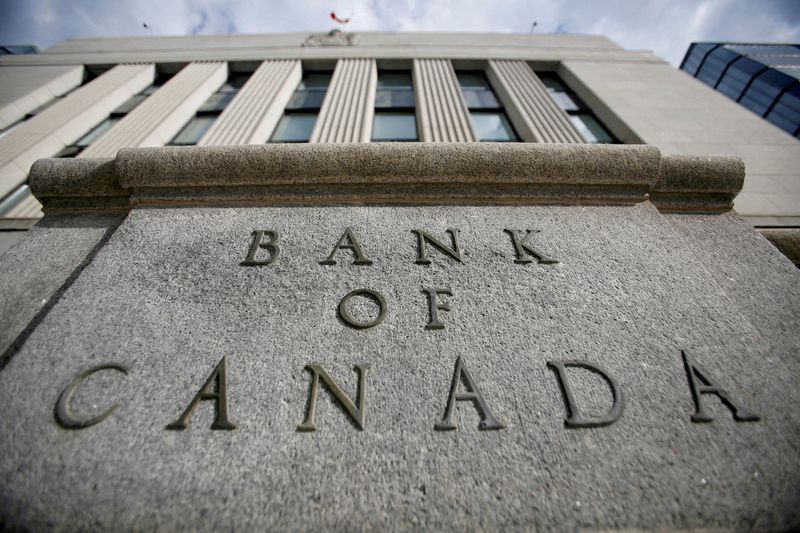By Julie Gordon and David Ljunggren
OTTAWA (Reuters) -The Bank of Canada's policy rate, at 1%, is "too stimulative" given soaring inflation and needs to return to more neutral levels "quickly," an official said on Thursday, while downplaying the likelihood of a supersized increase.
Deputy Governor Toni Gravelle, speaking to economists in Montreal, also said the central bank would likely revise up its near-term inflation projections, as the "perfect storm" of global and domestic price increases continue to persist.
"Our policy rate, at 1%, is too stimulative, especially when inflation is running significantly above the top of our control range," Gravelle said. "We need our policy rate to be at more neutral levels."
Inflation in Canada hit a 31-year high at 6.7% in March, its 12th consecutive month above the Bank of Canada's 1-3% control range and more than triple the 2% target.
He said the central bank was moving quickly to get back to the neutral range - between 2% and 3% - and reiterated it was prepared "to be as forceful as needed" to cool demand.
But later, answering audience questions, Gravelle said the outlook remained unusually uncertain and therefore it would not be easy to increase by 75 basis points (bps) in one go.
The Bank of Canada last month took the rare step of hiking its policy rate by 50 bps and it is widely expected to go ahead with another half-point move at its June 1 decision.
Earlier, Gravelle said the central bank could pause once rates are in the neutral range if price increases reverse course. Alternatively, rates may need to go above neutral as parts of the economy may now be less sensitive to hikes, he added.
"On average, Canadians are in better shape financially than they were before the pandemic," Gravelle said, noting households have more savings and less non-mortgage debt than before the pandemic.
But higher interest rates could also pinch household budgets and cool consumer spending more than expected, he said. And the housing slowdown could be more severe than thought.

"We could see a larger-than-expected slowdown due to higher indebtedness and unsustainably high housing prices," Gravelle said.
The Canadian dollar was trading 0.5% lower at 1.3060 per U.S. dollar, or 76.57 U.S. cents as the greenback surged against a basket of major currencies.